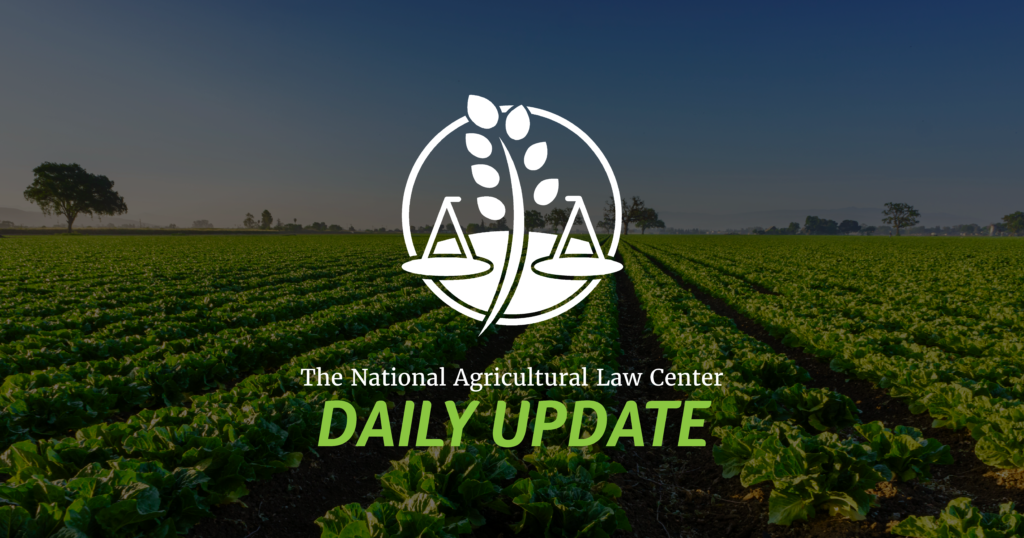A comprehensive summary of today’s judicial, legislative, and regulatory developments in agriculture and food. Email important additions HERE.
JUDICIAL: Eminent Domain, Right to Farm
In James Fredrick Miles, Petitioner, v. Texas Cent. R.R. & Infrastructure, Inc. & Integrated Texas Logistics, Inc., Respondents, No. 20-0393, 2022 WL 2283096 (Tex. June 24, 2022)(Dissent), the Supreme Court of Texas considered whether a for-profit corporation could use eminent domain to take private land alongside the proposed route for a high-speed train. The Court found that a statute that granted eminent-domain authority to facilitate the construction of small electric railways in Texas applied to the for-profit corporations wanting to build a high-speed rail system. The Court held that the two for-profit corporations did have eminent domain authority. Justices Huddle, Devine, and Blacklock dissented and argued that they would have found in favor of the landowners.
In Twp. v. Rice, No. 163053, 2022 WL 2252419 (Mich. June 22, 2022), the court considered whether a prevailing farm or farm operation under the Right to Farm Act (RTFA), was entitled to costs, expenses, and attorney fees under Michigan law. The Court of Appeals and circuit court held that the district court has full discretion to award defendant costs, expenses, and attorney fees. However, the Supreme Court of Michigan held that Michigan’s RTFA entitled a prevailing farm or farm operation to the actual amount of costs and expenses reasonably incurred in connection with the defense of the action and reasonable and actual attorney fees. The Court found that the statutory language leaves the discretion of seeking to recover expenses to the defendant and not the district court. A district court is required to award the costs, expenses, and fees provided by Michigan law. The Court reversed the judgment of the Court of Appeals and remanded to the district court to determine the amount of costs and fees that were reasonable incurred by the defendant as well as reasonable and actual attorney fees.
LEGISLATIVE: Includes Hawai’i, Iowa
HAWAI’I
HB 1992 permits composting and co-composting operations in agricultural districts. Info here.
HB 1568 requires certain Hawai’i state departments to ensure that a portion of the food they buy to consist of fresh, local agricultural products. Info here.
IOWA
HF 2581 provides for programs and regulations administered and enforced by the department of agriculture and land stewardship. Info here.
SF 2374 concerns alcoholic beverage control, and the delivery of restaurant food. Info here.
HF 2128 provides for compliance requirements and promotional initiatives related to establishing classifications and standards for renewable fuels. Info here.
